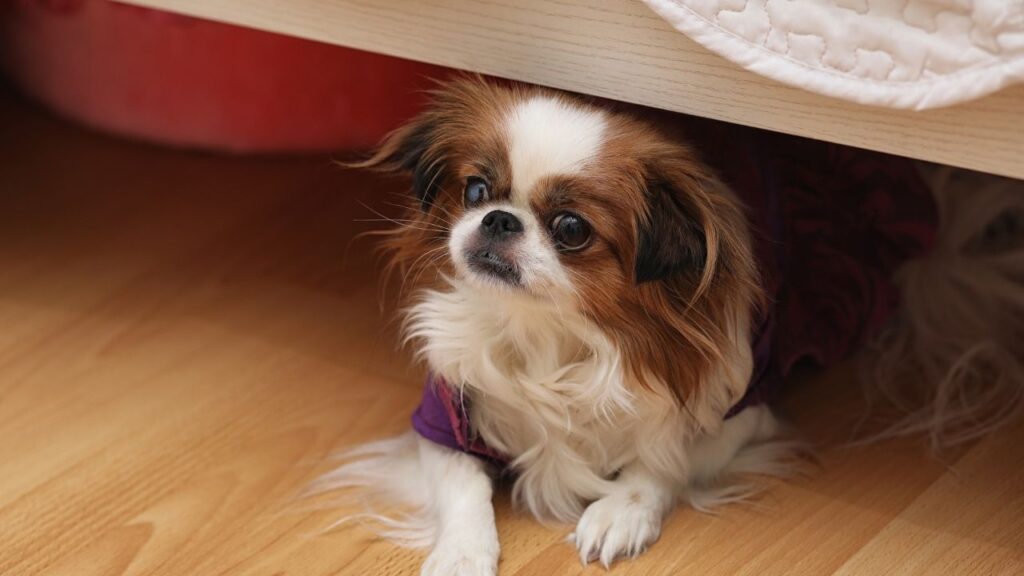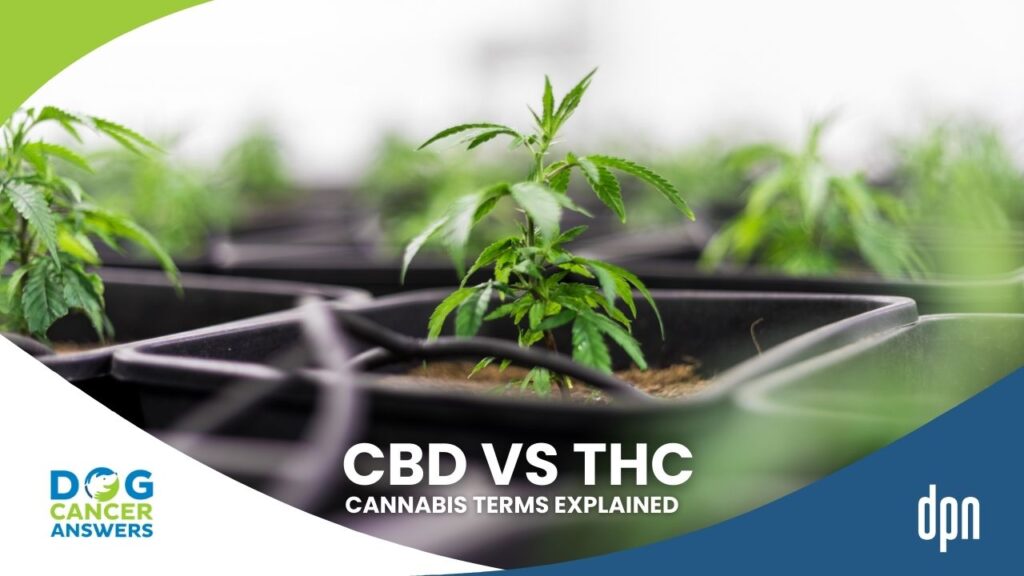EPISODE 115 | RELEASED April 5, 2021
Melatonin for Cancer from Lifestyle and Supplements | Dr. Demian Dressler Deep Dive
Melatonin is a powerful hormone generated while dogs sleep, in complete darkness. Low levels are associated with cancer. So how do we boost melatonin for cancer?
SHOW NOTES
Our grandmothers used to say “go to bed and stay there,” whenever someone got sick. Medical science is now saying that was better than good advice. It may be the best advice we can take. And it also applies to our dogs, maybe especially our dogs with cancer.
In today’s show, Dr. Dressler talks about melatonin, the powerful hormone that pumps out when we are sleeping in total darkness. A lack of melatonin is associated with cancer development, and it’s really important for cancer treatment.
Dr. Dressler talks about why this hormone is so important and how to boost it in dogs. What do we do when supplement forms cause side effects?
Dr. Demian Dressler is the author of The Dog Cancer Survival Guide: Full Spectrum Treatments to Optimize Your Dog’s Life Quality and Longevity.
You can reach out to Dr. Demian Dressler directly at South Shore Veterinary Hospital in Maui, Hawaii: https://VetinKihei.com.
>> Dr. Demian Dressler: [00:00:00] It’s almost boring because it sounds like a platitude it’s like, go outside, get rest and go to bed early, but it actually is meaningful and potent.
>> Announcer: [00:00:16] Welcome to Dog Cancer Answers, where we help you help your dog with cancer. Here’s your host, James Jacobson.
>> James Jacobson: [00:00:24] Hello, friend, and thank you for joining us today for a conversation that I hope will help you and your dog get a better night’s sleep. We’re speaking with Dr. Demian Dressler, author of The Dog Cancer Survival Guide, about one of the simpler strategies that he recommends to help your dog fight cancer. And that is melatonin. For those of you who have not yet read Dr. Dressler’s book, Dr. Dressler practices what he calls a Full Spectrum approach to cancer care. That means that everything that has been shown to help fight cancer is used, even when it comes from other medical systems, or as in today’s topic, what may sound like just basic lifestyle advice, the kind that our grandmothers used to give. If it helps to fight cancer he includes it in his approach.
Dr. Dressler. Thanks for being with us today.
>> Dr. Demian Dressler: [00:01:21] Pleasure being here.
>> James Jacobson: [00:01:22] So, let’s talk about melatonin. Why is it important? It’s something that you talk about in the Dog Cancer Survival Guide.
>> Dr. Demian Dressler: [00:01:29] Yeah. Well, I think melatonin is probably under appreciated in terms of cancer development in pets, and in people. It’s made in the pineal gland in your brain, in your dog’s brain, which is a little gland that’s kind of right in the center of the brain. People talk about it like the third eye or something, and it secretes hormones. And one of them is melatonin. And that’s the one that’s supposed to be peaking when you’re in deep sleep. Okay. Now melatonin, as it turns out is a very complicated little hormone because it has affects pretty much on every single cell in the body, but hormones will do that.
They get in the bloodstream and they go around and they’re really complicated. And to be honest, in a lot of cases, not all that well understood because things are just so complicated. To make a long story short, though, if you look at melatonin deficiency, particularly with human cancers, you can see that it’s one of the very strong risk factors that promote cancer development. And therefore you could say, okay, well, it’s got anti-cancer effects obviously, and that’s been shown. So the problem is of course, that if you’re taking melatonin from the outside, that is as a therapy or a supplement, it’s a bit different from your natural melatonin, but to make a long story short, one of the things that I stress is that providing sufficient melatonin in terms of lifestyle is, I think it’s a really good way of, at least setting the stage to correct a melatonin deficiency. Maybe. You’re not necessarily going to get like these really high, high, high therapeutic doses that have been used in human trials.
That’s not it, but you at least want to make sure that your dog doesn’t have a melatonin deficiency. And one of the things about melatonin that people may not realize is we’re, all animals are supposed to be secreting most of our melatonin right around 2:00 AM or 1:00 AM or something like that, when you’re to be sleeping.
Melatonin production is connected with light. That is the presence or absence of sunlight, ah, so it’s a very kind of cosmic hormone, because it’s connected with the wiring that we have associated with the movement of the planets, and things like time and cycles and stuff. The problem that people get into is they’re so used to having, I guess what I would call an unnatural lifestyle, that we take certain things for granted that we assume are normal, when they’re not good for us or for our animals. And one of the things is a lot of light when you’re supposed to be sleeping, particularly in the early morning hours, again, 1:00 AM 2:00 AM, things like that. And particularly blue light is especially potent at decreasing melatonin production.
And why do I bring that up? Because, usually when people are up at their time, they’re in front of a computer screen or watching TV. And blue light will shut off your melatonin secretion. And I believe the reason for that is because we’ve evolved like that, and animals have evolved like that, is because the sky is blue during the day.
And so light outside tends to have a blue cast and you’re not supposed to be having deep REM sleep dreaming in the middle of the day. Your melatonin levels are supposed to be low. Melatonin levels are connected with dreaming and rest. Now, when you’ve got good melatonin levels, your anti-cancer responses are much more amplified relative to when you have poor melatonin levels, low melatonin levels. This is especially bad if you’re a shift worker and you’re working overnights, and there’s a couple of studies that were done on nurses, and their cancer rates are through the roof because they were working overnight shifts when they ought to have been sleeping.
And they also have all had abnormally low melatonin levels.
>> James Jacobson: [00:05:32] Well, that’s really sad because nurses are such hard workers and really heroes in the medical field, especially these days. Well, Dr. Dresser, we need to take a quick break here to pay some bills, but when we get back, I want to come back to how we and our dogs can use these insights into melatonin to fight cancer.
We’ll be right back.
We’re back with Dr. Dressler talking about melatonin and cancer. Dr. Dressler, you were just saying that low melatonin levels are associated with a lower anti-cancer response in the body. And that we’ve seen the studies, that we’re tracking nurses, that their higher rates of cancer were connected with their abnormally low melatonin levels.
Now, I know that you’ve said, and you’ve written about how dogs are really similar to humans in terms of cancer. I know there’s a saying in cancer research that if it works in dogs, it can work in people. So. What do you make of this melatonin information when it comes to dogs?
>> Dr. Demian Dressler: [00:06:35] So practically speaking, how can we use this information to benefit our dogs with cancer?
Well, turn off the computers and the lights where your dog is sleeping if it’s getting too late at night. Animals and people are supposed to be sleeping, not awake, at one or two in the morning. So try to have a reasonable bedtime. It’s a really basic idea.
>> James Jacobson: [00:06:58] And this, I guess isn’t just for dogs with cancer, it is just to keep the whole pack happy and healthy.
>> Dr. Demian Dressler: [00:07:03] Yeah. And if you’re out during the day, by the way, and you get direct sunlight, that helps your melatonin levels also. It kicks it up at night and it gives you your vitamin D, which is another overlooked issue. Low vitamin D levels are incredibly common in cancer patients, and probably causal. In other words, vitamin D is another one and you get vitamin D in the sun.
Uh, at least humans do so that’s another thing. So it’s almost boring because it sounds like a platitude it’s like go outside, get rest and go to bed early, but it actually is meaningful and potent.
>> James Jacobson: [00:07:37] There’s some basis for that folk remedy, that folk medicine, that served humanity for a long time — and doganity. So. Let’s talk a little bit about using melatonin as a supplement. When would you want to use it as a supplement with your dog?
>> Dr. Demian Dressler: [00:07:52] You know, honestly, I’ve kind of stopped. I don’t really use it very much anymore. The reason why I found, and I used it in cancer patients for a while, the times when I think it’s most beneficial is when you’ve got a pacer, who’s up at night and who’s got anxiety at night. And those are usually going to be older doggies because they’re getting senile, and they’re getting, they have cancer and they’re senile and they’re pacing, and this type of thing at night, which is part of cognitive dysfunction actually. Or psychological issues like anxiety disorders. And that’s a whole area of discussion, I think that, I’m probably not going to get into right now. The short story is that at the doses that are relevant, extrapolating from the human studies that I’ve used in the doggies having cancer, even at lower doses, like some of the anti-anxiety doses, it would throw the dogs off sometimes, uh such that the next day they were kind of dopey. And I, and I had this happen a number of times, particularly with these older animals. And if you look at human beings, the therapeutic range with melatonin, and it can be a 10 fold difference in people who take melatonin. Like, people who are prone to depression, they need like one 10th of the melatonin dose, as compared to people who are not either depressed or prone to depression? And so there’s this huge dose range. There’s also bioavailability issues between the different products. And is it plant derived or animal derived or synthetic, and what’s absorbed and what’s not. And to make a long story short for anxiety, there’s better therapies.
And for cancer, I think there’s better ways of dealing with it. And I’ve just sort of, the way that I use melatonin now is preventing melatonin deficiency through lifestyle. As opposed to using it, I think is a therapeutic. Cause I think there are just better alternative in the use of, cause I’ve had dogs, right, you know, you get an 80 pound dog and you give them one and a quarter milligrams of melatonin, which is like a super low dose, and they’re knocked out for 18 hours. And I’ve seen that happen. It’s like, ehh, I don’t want to do that.
>> James Jacobson: [00:09:59] So it’s very sensitive based on the individual, the dog or the person
>> Dr. Demian Dressler: [00:10:03] Yeah, and you can’t predict it, necessarily, you know, you can’t predict it.
You can do a tolerance test.
>> James Jacobson: [00:10:09] Right.
>> Dr. Demian Dressler: [00:10:09] So if you’re hard to try it on the idea and you want to give your dog some melatonin, you could try like, a really conservative dose say discuss this with your veterinarian because they gotta be in the loop on it. But talk to your vet about a tolerance test, meaning, okay, let’s try one quarter of the dose of what we intend, and let’s just see how that works for a day or two before ramping it up. That’s the best way to go about dealing with this. When you’re dealing with a therapy that has an unpredictable outcome, as far as individual sensitivities, do a tolerance test first at about a quarter of the intended dose and watch your dog and see what the effects are because you may have a sensitive animal. Whereas you, if you gave like five or 10 milligrams or something, which would be, you know, take 10 or 15 milligrams of melatonin right before bed, which would be in line with the doses that were used in human beings, for leukemias, that’ll flatten most dogs.
>> James Jacobson: [00:11:01] Hmm. Yeah. Personally, I know that I’m very sensitive to melatonin, when I take a little bit, it’s just like, way too much. So I don’t like it. So it sounds like you’re thinking about melatonin as a supplement in general, has evolved over the years and you’re more focused on the lifestyle and the, you know, I imagine dark rooms and no blue light and all that stuff that will promote that, sounds more powerful.
>> Dr. Demian Dressler: [00:11:23] Yeah. Getting good rests. [laughs] Again, [laughs] it sounds a bit basic, but there’s good science behind it.
>> James Jacobson: [00:11:31] Probably as good a time as any, to ask you about this. What are your thoughts about having the dog sleep in the bed or in the bedroom? From the angle of everyone getting a good night’s sleep and like, keeping control of the situation and making sure that everyone’s asleep at night in a controlled environment.
>> Dr. Demian Dressler: [00:11:47] Well, you got to juggle the human lifestyle and the animal lifestyle in that case. So say you’re a person who, say you’re doing a early morning radio show in front of your computer or something, and you’ve got, you need that to survive. Well, then in that case, you try to minimize light exposure for the dog.
And if you can get the dog set up, if it’s not too stress inducing to get the dog set up outside the room. Well, that would be a good idea. Or you can set up a little sheet or use a, um, like those Japanese screens or something, inside the room that you can put up and then take down. That’s another good compromise solution.
I think it’s better to have the animal close by because they’re pack animals. Sometimes, you know, they’re more independent and they want to do their own thing, you know, and, and you’ll know, you know, your dog, right? So some of these dogs want to be close and some of the dogs want their space. Really depends.
So the use of screens to help minimize the light exposure is one strategy that can be done. Under circumstances where you need to be using light in the same room.
>> James Jacobson: [00:12:47] And on the dog cancer blog, you talk about using room darkening shades and doing everything you can to possibly keep the room where you and your dog sleep as dark as possible at night.
>> Dr. Demian Dressler: [00:12:57] Yeah. And so it depends on your environment too. If you’re in an urban environment where there’s light filtering through the windows, say you live next to a streetlight or you live across the street from a stadium or something. So, or your there’s uh traffic lights, the headlights that come through your windows.
Yeah. So all that, like you want to try to create a nice dark sleeping space for the animal and for you too. Although nobody’s brought up orange lenses for the dog, which I’m surprised, yeah,
>> James Jacobson: [00:13:23] Yes, I was going to ask about that. There’s all these filters that you can use in your computer, and glasses you can wear.
>> Dr. Demian Dressler: [00:13:28] If the dog will tolerate it, I don’t see why not? You know, I mean, I think that’s another way of doing it. I’ve not done it before, but like some dogs’ll wear sunglasses just fine. So, that’s something you can look into, like these
>> James Jacobson: [00:13:37] Doggles
>> Dr. Demian Dressler: [00:13:38] blue light filters. Yeah.
>> James Jacobson: [00:13:40] Do they have blue light filtered glasses or,
>> Dr. Demian Dressler: [00:13:41] haven’t seen em
>> James Jacobson: [00:13:42] doggles,
>> Dr. Demian Dressler: [00:13:42] I haven’t seen them, but you can get straps on sunglasses and, and,
>> James Jacobson: [00:13:47] someone should do that
>> Dr. Demian Dressler: [00:13:47] [laughter] and make it work.
>> James Jacobson: [00:13:48] There’s a million dollar idea. Dr. Dressler. Thank you so much for being with us.
>> Dr. Demian Dressler: [00:13:52] Thank you very much.
>> James Jacobson: [00:13:53] Okay. Listener, we’ll be back in just a minute, after this quick break with five suggestions for how to help your dog’s sleeping environment, we’ll be right back.
So here are some really practical things that you can do to create a better sleeping environment for yourself and for your dog to boost melatonin. I’m getting these ideas from Dr. Dressler’s book and also from our private Facebook group members. You can join the Dog Cancer Support Group, which is our private Facebook group, by going to DogCancerSupport.com, or by clicking on the link in the show notes. Okay. So here are five things that you can do tonight, and a couple more that you can implement over the next week or so. One, you can just pull the shades. That’s simple, darken the room, as much as possible. There are room darkening curtains and shades that you can get everywhere now from your local store or online, wherever. I’ll make sure that there are some links in the show notes for today’s episode.
Two: you can pick up your phone, or your device and look for the night settings. In iOS, it’s called Night Shift and on Android phones it’s called Night Mode. Turn those on, and your phone will actually stop emitting as much blue light at night as it does during the day. And that can make a huge difference.
Three, if you have a newer television, there may be a night shift feature on that as well, which will really help. Most of us who watch TV at night, won’t stay up as late if it’s in the night mode, we don’t get exposed to that much blue light, and so our brains start to get sleepy earlier. See what I did with my voice there? Four: consider removing your TV from your bedroom altogether, or setting it to turn off after a certain point. I know someone who actually installed a timer on the power strip so that the TV simply powers itself off at 9 PM: TV off and off to bed. That is definitely the message in their house. And five, I really recommend having a bedtime ritual that starts at a certain point in the evening, so that you’re in bed and lights out by 10:00 PM, which is universally recommended by sleep experts.
That way you’ll be asleep during peak melatonin production hours. Because no matter how much you eliminate blue lights, the only way to make melatonin is to be asleep. If you’re not asleep, your pineal glands cannot generate melatonin. And of course, all of these measures will help your dog get that good restorative, dark night’s sleep, and they’ll all be better off for it.
Well, that is it for today’s show. I want to thank Dr. Dressler for coming on and discussing melatonin. And I also want to thank you for taking the time to be with us today. I appreciate you for caring about your dog as much as you do, and doing everything that you can. Hey, will you do me a favor and head over to Apple Podcasts and rank and review this show?
It can make a difference and help dog lovers who need help with their dog’s cancer to find us when they need us. And another thing, please tell five dog loving friends about the show, and your veterinarian as well. Dog Cancer Answers. It makes a difference. The more people know about us, the more we can help others.
Those touchstones are here every week to remind me, to tell you that if you ever have a question that you think would make a good show, you can leave it on our Listener Line by calling (808) 868-3200. We’ll get one of our veterinarians to answer it and you’ll help countless listeners in the future, by leaving us a question. The number again, (808) 868-3200, leave us a voicemail. And you can find the show notes for this episode, with all the relevant links and helpful tips in your podcast app, or you can find them on our website, which is DogCancerAnswers.com, where you will also find our entire back catalog of every episode. It’s worth checking out other episodes, too.
There’s so much there to help you. Well, thanks again for listening. I am James Jacobson and as always from all of us here at Dog Podcast Network, we wish you and your dog, a very warm Aloha.
>> Announcer: [00:18:41] Thank you for listening to Dog Cancer Answers. If you’d like to connect, please visit our website at DogCancerAnswers.com or call our Listener Line at (808) 868-3200. And here’s a friendly reminder that you probably already know: this podcast is provided for informational and educational purposes only.
It’s not meant to take the place of the advice you receive from your dog’s veterinarian. Only veterinarians who examine your dog can give you veterinary advice or diagnose your dog’s medical condition. Your reliance on the information you hear on this podcast is solely at your own risk. If your dog has a specific health problem, contact your veterinarian.
Also, please keep in mind that veterinary information can change rapidly. Therefore, some information may be out of date. Dog Cancer Answers as a presentation of Maui Media in association with Dog Podcast Network.
Hosted By
SUBSCRIBE ON YOUR FAVORITE PLATFORM
Topics
Editor's Picks
CATEGORY











